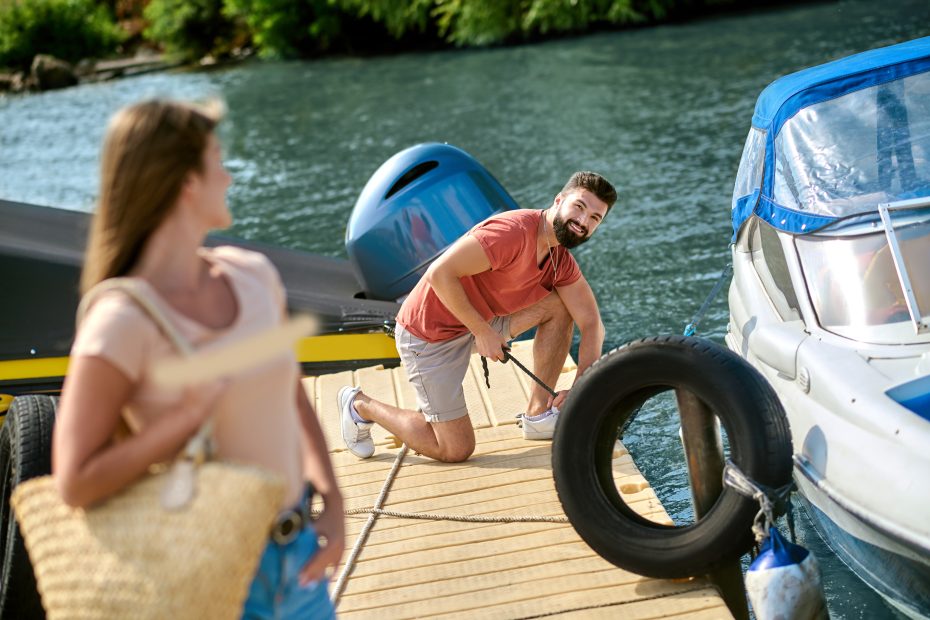WHAT EVERY BOAT OWNER SHOULD KNOW
Owning a boat or personal watercraft opens the door to many adventures, serene weekends, and endless memories on the water. But just like your car or home, your watercraft needs protection. That’s where watercraft insurance comes in.
Whether you’re cruising in a yacht, speeding along in a jet ski, or fishing from a small motorboat, having the right insurance policy ensures you’re covered when the unexpected strikes. In this blog, we’ll break down what watercraft insurance is, what it covers, and why you need it.
WHAT IS WATERCRAFT INSURANCE?
A watercraft insurance policy is a type of policy that offers financial protection for boats and personal watercrafts. It can cover physical damage, liability, medical expenses, and other costs associated with boating accidents or theft.
Unlike auto insurance, watercraft insurance is not legally required in most states. However, marinas, lenders, and certain waterways may mandate it — and going uninsured can be a costly gamble.
TYPES OF WATERCRAFTS COVERED
Watercraft insurance typically covers:
- Motorboats (including fishing boats and runabouts)
- Yachts
- Sailboats
- Jet Skis and PWCs
- Pontoon boats
- Houseboats
Note: Canoes, kayaks, and small boats with no engine are often covered under homeowner’s policies, but coverage is usually limited.
WHAT DOES A WATERCRAFT INSURANCE POLICY COVER?
Here are the key components of a standard policy:
LIABILITY COVERAGE:
Protects you if you’re responsible for an accident that causes injury or property damage to others. It can cover legal fees, medical bills, and repair costs.
PHYSICAL DAMAGE COVERAGE:
Covers repairs or replacement if your boat is damaged due to collision, fire, theft, vandalism, or weather-related events.
UNINSURED/UNDERINSURED BOATER COVERAGE:
If you’re hit by a boater without sufficient insurance, this part of your policy can cover your injuries and damages.
MEDICAL PAYMENTS COVERAGE:
Pays for medical expenses for you and your passengers, regardless of who was at fault.
TOWING AND ASSISTANCE:
Covers on-water towing, fuel delivery, or jump-starts when you’re stranded.
PERSONAL PROPERTY COVERAGE:
Protects equipment, fishing gear, and other personal items stored on the watercraft.
OPTIONAL ADD-ON ENDORSEMENTS
- Agreed Value Coverage: Guarantees a set payout amount in the event of a total loss, rather than actual cash value which factors in depreciation.
- Environmental Liability: Covers clean-up costs if your boat leaks fuel or pollutants.
- Trailer Coverage: Insures the trailer used to transport your watercraft.
- Hurricane Haul-Out: Pays to have your boat hauled or moved in advance of a named storm.
FACTORS THAT AFFECT YOUR PREMIUM
Several factors determine how much you’ll pay for watercraft insurance:
- Type, size, age, and condition of the vessel
- Horsepower and speed capabilities
- Storage location (dock, marina, trailer, etc.)
- Navigational territory (inland lakes, coastal waters, international waters)
- Operator’s experience and boating safety certifications
- Claims history
TIPS FOR SAVING ON WATERCRAFT INSURANCE
- Take a boating safety course
- Bundle with other policies (auto, home)
- Install safety and anti-theft devices
- Maintain a clean boating record
DO YOU REALLY NEED WATERCRAFT INSURANCE?
Even the most careful boater can encounter rough waters. Accidents, weather events, and theft can all lead to substantial out-of-pocket expenses. If your boat is valuable, financed, or used frequently, watercraft insurance is not just smart — it’s essential.
Think of it as a safety net that protects your financial well-being, so you can enjoy the open water with peace of mind.
FINAL THOUGHTS
Watercraft insurance offers crucial protection against life’s uncertainties on the water. Whether you own a luxury yacht or a weekend jet ski, investing in the right policy ensures that your aquatic adventures stay smooth — and your finances stay afloat.
If you’re in the market for a policy, ask to speak to one of our personal account advisors to tailor a proposal that fits your specific vessel and needs.
Written by: Morgan Overton


